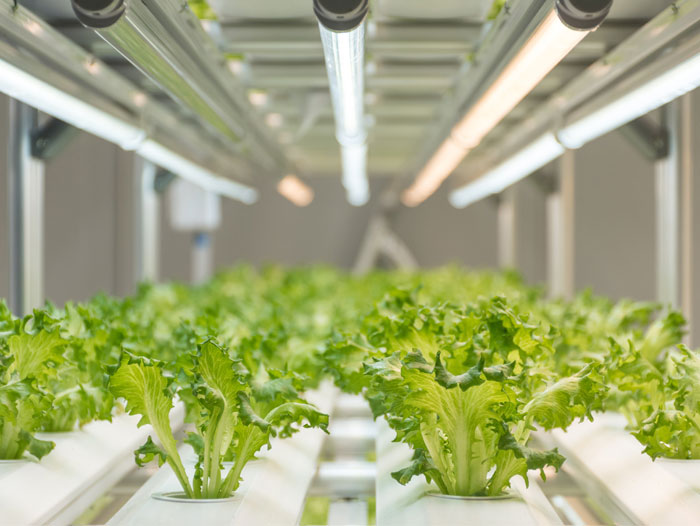Lots of Indoor Farms are Shutting Down as Their Businesses Struggle. So Why Are More Being Built?
September 18, 2023 | 2 min to read
In Cleburne, Texas, Eden Green Technology is revolutionizing indoor farming with its greenhouses producing fresh vegetables year-round. Utilizing innovative technology, the company aims to secure food supplies against climate change while conserving resources. Despite substantial investments, the industry faces challenges, as notable players like Plenty Unlimited expand while others, including AeroFarms and AppHarvest, struggle, highlighting the risks inherent in this burgeoning sector.

CLEBURNE, Texas — Inside a bright greenhouse about an hour outside Dallas, workers in hairnets and gloves place plugs of lettuce and other greens into small plastic containers — hundreds of thousands of them — that stack up to the ceiling. A few weeks later, once the vegetables grow to full size, they’ll be picked, packaged and shipped out to local shelves within 48 hours.
This is Eden Green Technology, one of the latest crop of indoor farming companies seeking their fortunes with green factories meant to pump out harvests of fresh produce all year long. The company operates two greenhouses and has broken ground on two more at its Cleburne campus, where the indoor facilities are meant to shelter their portion of the food supply from climate change while using less water and land.
But that’s if the concept works. And players in the industry are betting big even as rivals wobble and fail. California-based Plenty Unlimited this summer broke ground on a $300 million facility, while Kroger announced that it will be expanding its availability of vertically farmed produce. Meanwhile, two indoor farming companies that attracted strong startup money — New Jersey’s AeroFarms and Kentucky’s AppHarvest — filed for bankruptcy reorganization. And a five-year-old company in Detroit, Planted Detroit, shut its doors this summer, with the CEO citing financial problems just months after touting plans to open a second farm.
To read the rest of the story, please go to: Associated Press
